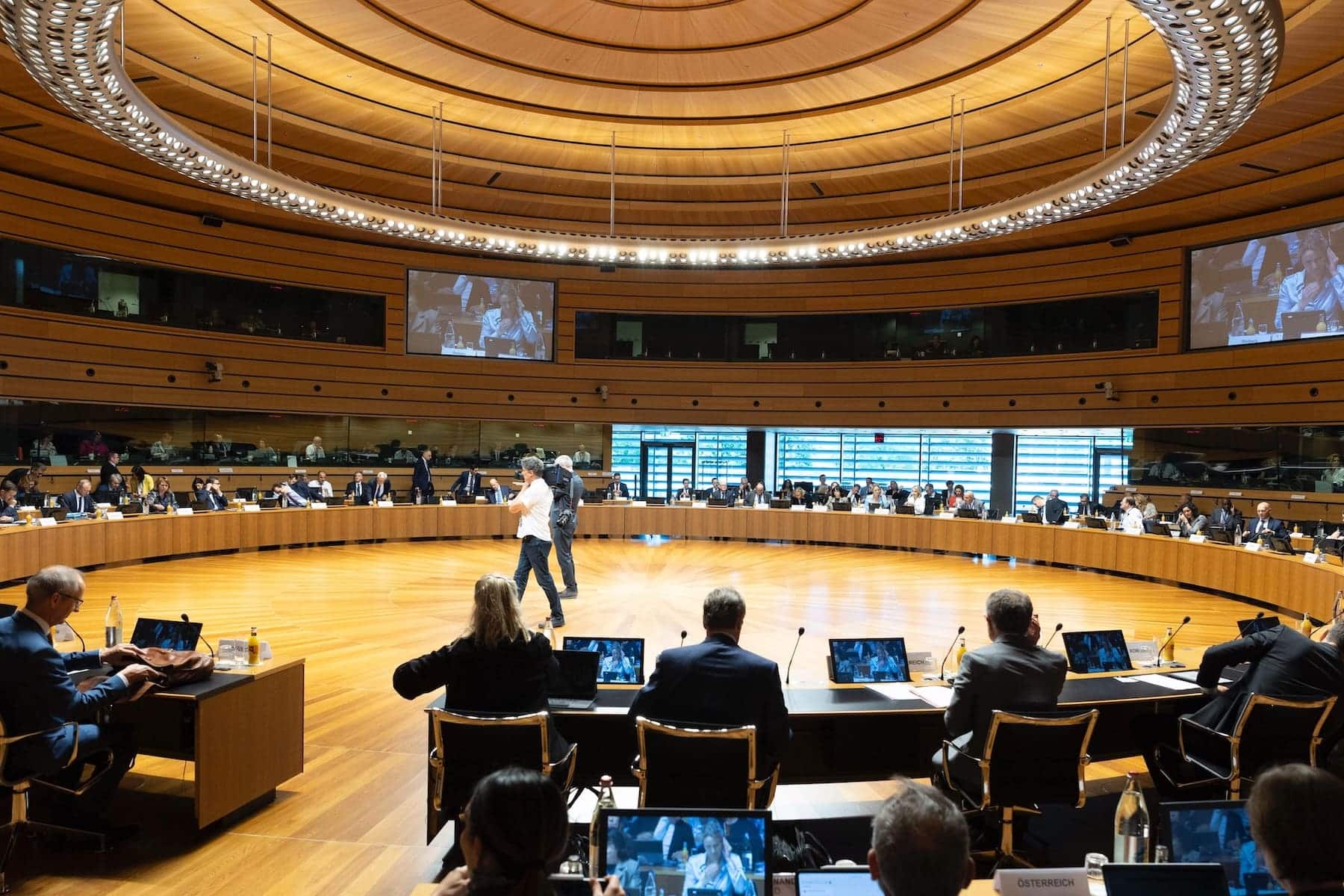The EU is pushing an unprecedented package that prioritizes security, energy grids, and the new TechEU program to consolidate European technological sovereignty.
The European Investment Bank (EIB) has approved a historic increase in its financing ceiling for the 2025 fiscal year, setting it at €100 billion. This decision, backed by the 27 member states of the European Union, aims to accelerate strategic investments in defense, energy security, and technological innovation, which are considered key pillars for preserving the continent’s competitiveness and autonomy in an increasingly volatile international context.
The agreement was reached during the Governors’ Council meeting, which includes the finance ministers of the member states, held in Luxembourg. In addition to the increase in financing volume, new financial instruments and programs have been approved to boost critical sectors such as clean energy, artificial intelligence, robotics, and advanced materials.
Strong Commitment to Defense and Security
One of the most notable new aspects is the allocation of 3.5% of the total financing—about €3.5 billion—specifically earmarked for the European security and defense sector. Among the authorized projects is the construction of a new military base in Lithuania that will house the German Bundeswehr brigade, an initiative considered strategic for NATO and regional stability.
Additionally, €12.8 billion has been authorized for concrete operations aimed at strengthening Europe’s defensive capabilities, securing its energy grids, and enhancing its external projection through global collaborations in renewable energy, sustainable transport, and access to drinking water.
TechEU: The Largest EU Tech Funding Program
The EIB has announced the launch of TechEU, an ambitious program that will mobilize €70 billion in direct financing—through equity, quasi-equity, loans, and guarantees—during the period from 2025 to 2027. The goal is to attract at least an additional €250 billion in private investment.

TechEU will focus on strategic sectors such as supercomputing, artificial intelligence, digital infrastructure, clean technologies, critical materials, health, cybersecurity, and defense. It will also support emerging and innovative companies from their initial phases to their public offerings, aligning with the EU’s strategy to promote startups and scaleups.
Strengthening the European Green Industry
The new plan also includes specific instruments to strengthen European leadership in clean technologies, in line with the EU’s Clean Industrial Deal. Among these are:
- A €1.5 billion package to support manufacturers of electrical grid components, facilitating their industrial scaling.
- A €500 million pilot program to promote long-term power purchase agreements (PPAs) between industrial companies and renewable energy producers.
- A specific guarantee of €250 million to provide liquidity to highly innovative SMEs in the cleantech sector.
- An expansion of €1.5 billion to support the European wind turbine industry and its components.
Institutional Leadership and a New Operational Approach
The Finance Minister of the Czech Republic, Zbyněk Stanjura, has assumed the presidency of the EIB’s Governors’ Council, succeeding Bulgarian Minister Temenuzhka Petkova. This appointment reinforces the political will to accelerate the bank’s activity in strategic areas.
At the same time, Katja Pluto has been appointed chair of the Audit Committee, succeeding Nuno Gracias Fernandes, with the mandate to ensure the financial integrity of the entity amid its growing operational exposure.
Support for Ukraine and International Cooperation
The approved package also includes initiatives focused on Ukraine’s economic reconstruction. A pan-European guarantee operation has been authorized through the agreement between the European Investment Fund (EIF) and Germany’s export credit agency, aimed at supporting companies trading with Ukraine. Additionally, guarantees have been signed with Ukrainian banks to facilitate access to financing for more than 1,500 SMEs in the country.
Beyond Europe, the EIB will finance solar energy projects in Romania, energy networks in Germany, educational infrastructure in Finland, water projects in Ireland and the Netherlands, and will promote global partnerships with investments in renewable energy in Colombia, sustainable river transport in Nigeria, and sanitation in Tanzania.
A Strategy for an Uncertain Environment
The president of the EIB Group, Nadia Calviño, stated that this financing expansion responds to the need to equip Europe with the appropriate tools to face a world “where everything changes at the same time.” In this sense, the bank reaffirms its role as a key instrument for executing the EU’s strategic priorities without compromising its financial strength.
The increase in the financing ceiling is part of a mid-year review of the group’s operational plan, which had already mobilized more than €100 billion in 2024 to strengthen the continent’s energy security and provided €110 billion in capital for European startups and scaleups.
With this roadmap, the EIB and the EIF consolidate their role as catalysts for sustainable growth and the strategic autonomy of Europe, promoting investments that combine economic, social, and environmental impact.

